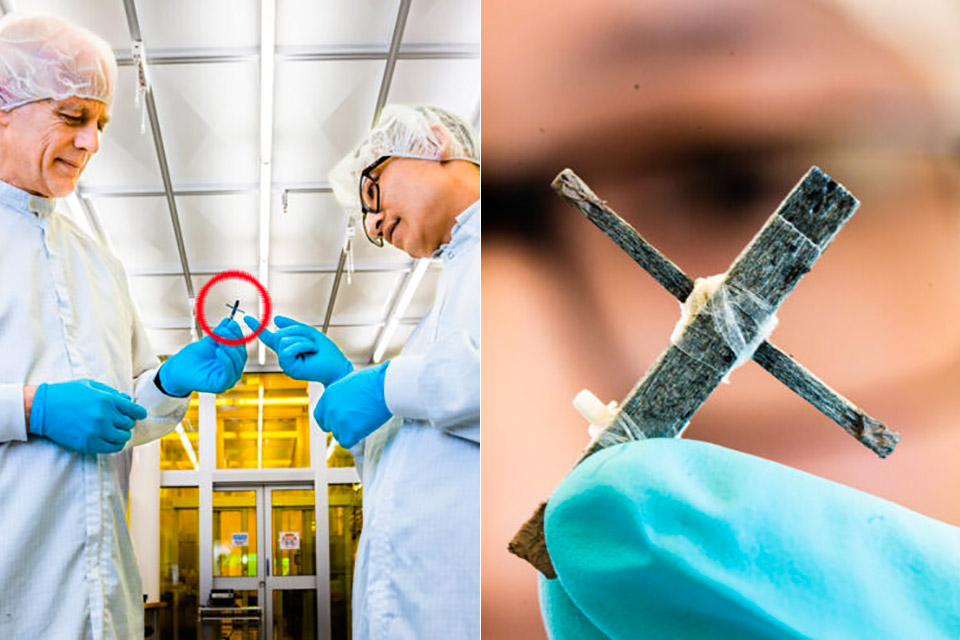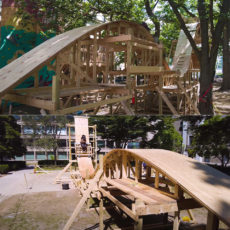
Photo credit: THOR BALKHED
Researchers from Linköping University and the KTH Royal Institute of Technology have developed the world’s first wood transistor, paving the way for more advanced wood-based electronics. Previous attempts resulted in wood transistors capable of only transport, while this latest iteration functions continuously and can regulate electricity flow without deteriorating.

To achieve this, the researchers utilized balsa wood to make their transistor and then removed the lignin, leaving just the long cellulose fibers with channels where the lignin had been. These channels were then filled with a polymer, called PEDOT:PSS, resulting in an electrically conductive wood material. Aside from regulating electric current and providing continuous function at a selected output level, it was also able to switch the power on or off.
- Echo Dot Kids – Our most popular and cutest smart speaker with Alexa, made for kids (not a toy). The improved speaker delivers clearer vocals and...
- Where learning meets fun – Kids can ask Alexa to play music, read a bedtime story, get help with their homework, and more. Stream songs from Amazon...
- Includes 1 year of Amazon Kids+ – A digital subscription designed for kids aged 3-12 to safely learn, grow, and explore. On Echo Dot, kids can enjoy...
We didn’t create the wood transistor with any specific application in mind. We did it because we could. This is basic research, showing that it’s possible, and we hope it will inspire further research that can lead to applications in the future,” said Isak Engquist, Senior Associate Professor at the Laboratory for Organic Electronics at Linköping University.






